Honda Announces Plug-in Hybrid and EV Commuter for 2012
Am I the only one who was a bit stunned at Honda’s announcement today? CEO Takanobu Ito outlined the company’s plans to introduce both a mid-size plug-in hybrid and an electric commuter vehicle in the U.S. and Japan by the end of 2012. He told Reuters, “It’s starting to look like there will be a market for electric vehicles. We can’t keep shooting down their potential, and we can’t say there’s no business case for it.”
So what so weird about this?
In the first place, Honda’s longstanding commitment to its current alternate fuel vehicle, the hydrogen fuel cell F6 Clarity, which, of course, is an electric vehicle; batteries and fuel cells are simply two different ways of providing portable electrical energy. Perhaps Ito simply misspoke, but that strikes me as a mistake that the CEO of Honda would be most unlikely to make. (more…)



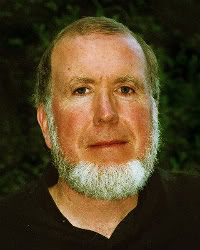



 An opinion poll from Civil Society Institute (CSI) said this week that key poll results reveal Tea Party members have quite different views on clean energy than Independents. The CSI poll is fully independent and not financed, supported, commissioned, conducted or released by any company, group, candidate or party.
An opinion poll from Civil Society Institute (CSI) said this week that key poll results reveal Tea Party members have quite different views on clean energy than Independents. The CSI poll is fully independent and not financed, supported, commissioned, conducted or released by any company, group, candidate or party.

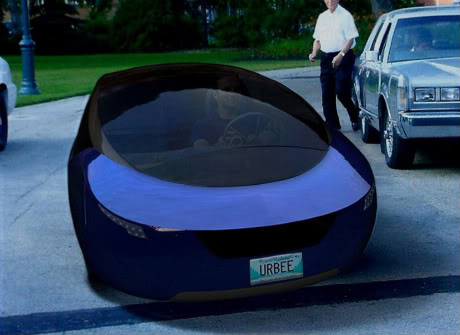
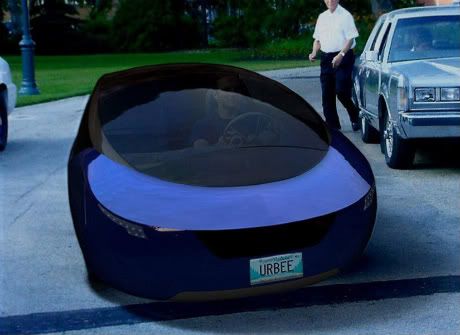


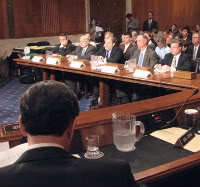
 Congratulations to the Republicans on their victories yesterday, running successfully on the message of a smaller and more accountable government. But I hasten to point out that there is identically zero precedent for Republican’s (or Democrat’s) actually delivering on that promise. As shown on the graph below, historically, government bureaucracies are never removed; they grow roughly with the GDP regardless of who’s in power. But – for a few weeks at least – the people can feel that they’re being heard as a new set of agendas comes to Washington.
Congratulations to the Republicans on their victories yesterday, running successfully on the message of a smaller and more accountable government. But I hasten to point out that there is identically zero precedent for Republican’s (or Democrat’s) actually delivering on that promise. As shown on the graph below, historically, government bureaucracies are never removed; they grow roughly with the GDP regardless of who’s in power. But – for a few weeks at least – the people can feel that they’re being heard as a new set of agendas comes to Washington.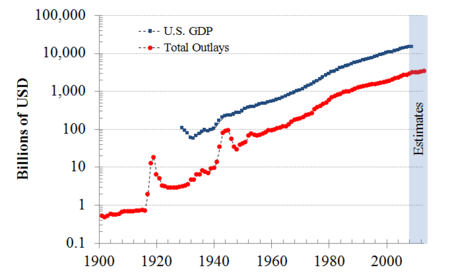
![[The Vector] News From Around the Country: Georgia Power to Double Solar](http://2greenenergy.com/wp-content/uploads/2010/10/Sun-and-Sky-with-clouds-150x150.jpg) The utility company Georgia Power reports it is doubling the amount of solar energy it will buy from independent producers. Lauren McDonald, Chair of the utility, said it will buy another 2.5 MW of capacity from homes and businesses with solar panels, to bring the total over 5 MW. 1 MW can power about 250 homes or one SuperTarget.
The utility company Georgia Power reports it is doubling the amount of solar energy it will buy from independent producers. Lauren McDonald, Chair of the utility, said it will buy another 2.5 MW of capacity from homes and businesses with solar panels, to bring the total over 5 MW. 1 MW can power about 250 homes or one SuperTarget.
